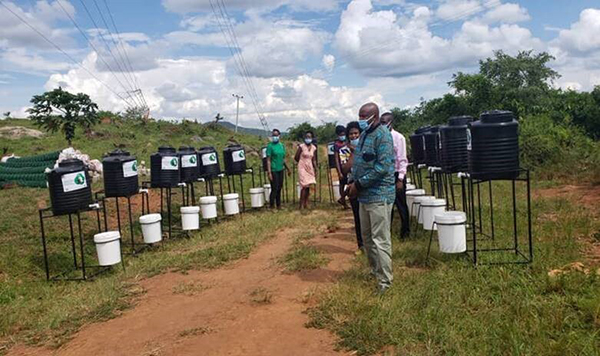This article was published more than 4 years ago.
For many activists across the globe, community education is at the heart of their work. The spread of the novel coronavirus, however, has presented daunting challenges. In the midst of quarantines, crackdowns, and confusion, how do you ensure that citizens have the information they need to safely navigate this historic crisis?
The National Association of Professional Environmentalists (NAPE) is one of Uganda’s leading human rights organizations. Director Frank Muramuzi and his team are at the forefront of the country’s climate justice movement, offering sustainable and equitable solutions to challenges like water governance, extractive industries, and biodiversity. But when COVID-19 shut down much of their usual work, NAPE pivoted to address the public health emergency—over the airwaves.
Using emergency funding for COVID-19 rapid response efforts—including support from the Fund—NAPE secured the means necessary to ensure their community radio station, Community Green Radio, would continue broadcasting. Technology like laptops and reliable internet access were critical infrastructure for their radio crew. But they also needed protective equipment at the radio station, sanitary supplies at their community listener clubs, and special vehicles for their team after public transportation was shut down.

NAPE has used its Community Green Radio as a hub for information about COVID-19, running educational talk shows about health, safety, and disease prevention. As the Ugandan state assertively—and sometimes violently—enforced lockdown rules, NAPE also partnered with the Uganda Human Rights Commission (UHRC) to offer programming on civic responsibility, informing listeners of their rights and obligations and inviting community members to report infractions.
“As the country grapples with the fight against the COVID-19 pandemic, let us not forget that some human rights are non-derrogable and cannot be taken away in any circumstances,” one joint broadcast with UHRC announced. “All people are urged to refrain from all sorts of gender-based violence, land grabbing, and land evictions.”
In addition to supporting health and human rights over the airwaves, NAPE used their emergency funding to procure and disseminate personal protective equipment—including masks, sanitizer, and thermometers—to their staff, field offices, and more than 20 community centers. In a recent report, NAPE revealed that no member of their constituent communities has tested positive for COVID-19.
But with COVID-19 cases on the rise in Uganda—alongside a parallel spike in alleged human rights abuses by security forces—NAPE’s efforts to share vital information and monitor rights violations are far from over. The Fund is proud to support their critical work, and we’ll be sure to tune into Community Green Radio for all the latest news.


